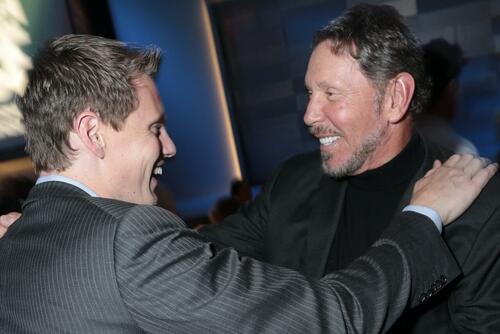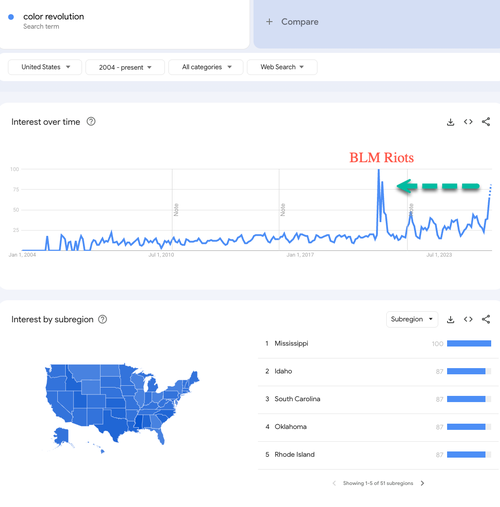(0:00 - 1:07)
There is no question that our educational system is in serious trouble. And while many of you are aware of the woke ideologies pervading our university campuses, the problems are starting much earlier than that. In our public school systems across Canada, and also in our separate systems in the provinces of Alberta, Ontario, and Saskatchewan, teachers are not allowed to maintain discipline in their classrooms, not allowed to fail students even if they do no work whatsoever, and lack the proper resources to teach effectively.
In addition, children with behavioral problems or learning disabilities who used to have their own classrooms are now integrated into regular classrooms, forcing teachers to lower teaching standards and thus robbing most of our kids of the opportunity to be challenged, to not only learn, but to learn how to think. But it gets worse. Our schools have become indoctrination centers for woke ideology.
(1:08 - 3:12)
For DEI, critical race theory and the trans agenda, and debate on or rendering objections to these ideologies is now politically incorrect. Teachers lose their jobs for objecting and students in our country have even been expelled for questioning those agendas. The news, however, is not all bad.
In response to the degradation of education in Canada, many conservatives are now running for school board trustee. And when our boards consist of a majority of those people, we can expect our educational system to improve. One of these conservatives is Dr. Joanny Liu.
The daughter of Chinese immigrants, Dr. Joanny was born and grew up in Canada. She is as Canadian as I am, but also has the advantage of having been raised by immigrant parents, so she understands the challenges they faced. She spent over 20 years working as an engineer in the Alberta oil patch and then another two decades as a practitioner of traditional Chinese medicine.
She's also been very active in recent years in the fight for our charter rights and freedoms. Since this spring, Dr. Joanny has been knocking on doors in Calgary as part of her campaign running for public school trustee in Wards 3 and 4. She estimates she has now spoken to over 1,000 people.
She joined me in the studio recently to share with us what she's hearing from constituents and parents and to reveal that the vast majority of people she speaks with are not just extremely concerned with the state of our educational system, but believe that it is fundamentally broken and needs to be rebuilt from the ground up. Dr. Joanny, thanks so much for taking the time today for this interview. I'm very happy to be here.
(3:12 - 3:21)
And you're in the midst of attempting a very good career change. We've got an election coming up here in Calgary. You're running for public school board trustee.
(3:21 - 3:46)
You've been out talking to people and I'm very interested in what they've been saying about their concerns about our educational system. My goodness, I've talked to probably about 1,000 people by now and the stories that I've been hearing have been horrifying. And it's not even just about what's happening with their kids.
(3:47 - 4:15)
It's also what's happening to teachers, what's happening in the classroom. And it's very disturbing. But I was especially astounded because, you know, I figured that our education system was failing us, but I had no idea about just how bad it is and just how bad it is, is that many of our kids are actually graduating without being able to read, write, and do basic math.
(4:15 - 7:21)
Yes. And this is something I know about. As you're aware, I've been married to a teacher for 28 years in the Catholic system.
And a big part of the problem is they're not allowed to fail them anymore. So basically you've got, you have kids who are literally doing nothing and getting a passing grade. Yes, I mean, that's true.
A big part of the problem is the teaching methodology that's being used. So the word for that is pedagogy. And they've been using these experimental methods, such as whole word reading and common core math.
So that's what it's called. Even some of my volunteers are young enough to know what methodologies have been used. And so with common core math, for example, it's come up with very complicated ways of doing things, of doing basic math that make absolutely no sense to parents and grandparents, uncles and aunts, you know, people like myself who were educated a certain way that actually worked.
So, so the kids are finding it very difficult and so are the parents. So if the kids and the parents are both finding it difficult, then why do we continue with this methodology? And it's the same thing with reading. Because I didn't really understand what it was until I was speaking with parents and grandparents whose children are struggling with reading.
And, and as a result, the kids don't like reading. And it's the same thing for math because it's so difficult. But I guess one grandparent described it to me as the kids get a list of words that they have to memorize.
It may not be that simple. I don't know for sure because I don't have any kids in the system right now. However, it's something that contradicts, contradicting that because they feel that memorizing is a bad thing or it's not worth doing.
And yet, I mean, if they're really giving... The kids do or the teachers do? What do you mean? Well, when they say that they don't feel like there's any point in memorizing, that's a bad thing. Well, this has been a philosophy or a way of thinking for the last, I'd say at least 20 years. People have discounted memorization because they say it's not thinking.
But, but what is learning all about really? I mean, you do have to remember some things. Multiplication tables, for example, we used to memorize them. But you also knew what it meant, you know, two times two means two groups of two things.
(7:22 - 8:13)
So you have four. So memorizing your, your basic math, two plus one is equal to three, you know, this sort of thing means that you can just know these things right off the bat. You don't even have to think about it.
Okay. And that's okay, that you don't always have to think about these things. I have friends who've told me that their kids started before they started school.
So they're, you know, five or six years old, and they're already really good at math. And then when they get into school, they actually regress, they regress. I had one family who told me that their, her grandchild was really good at fractions.
(8:14 - 8:47)
And, and when she was talking to her grandchild later on, all of a sudden, like, no, grandma, that's not the way we do it. And all of a sudden, he doesn't know how to do fractions, because of the way they're teaching it. I mean, it's so ridiculous.
I'm not even sure teachers are comfortable with this. Because I think teachers really want to see their students succeed. And if their students aren't succeeding, I can't think of them feeling good about themselves.
(8:48 - 10:13)
If, if a child is actually not able to succeed in all the tests that they give, how can they possibly feel good if the kid is failing all the way through, and then passing them into the next grade? Whenever I meet somebody at the door, who, who has very, very young children, so babies and that sort of thing, I warn them. I tell them that, do you realize that Alberta has a no-fail policy? And, and they may say yes, they may say no. And I tell them, make sure that in kindergarten and grade one, that your child is getting the basics.
Because by the end of grade one, they're going to pass them on to grade two, and so on, and so on, and so on. They're never going to catch up. They're never, ever going to catch up.
And that's why we end up with kids who can't read, write, and do basic math when they graduate. Now, I've actually spoken to some of these young people, and they know they've been short-changed, but too late. Yes.
(10:13 - 10:40)
Now, for a lot of parents, they're spending the extra money, going to Kumon, getting tutoring, because they're aware of what's happening, but they're very, very disappointed. They're disappointed with the, the lack of discipline, the lack of work ethic. And I hear this from Canadians, as well as nationalized Canadians, you know, immigrants.
(10:41 - 12:09)
Immigrants, especially, are very disappointed. Because in my parents' time, and I'm talking about the late 1950s, I mean, they came to Canada for a better education, a better future for their kids. And now people are saying that this isn't happening.
This is not what they expected. Before we move on to the immigrants, and I do want to talk about that, there's a couple of things you said in the last few minutes that I want to dig deeper into. The first one is, yes, this lack of emphasis on memorization.
You know, you and I probably went to school around about the same time, and we were expected to memorize things. And while I would agree, as somebody who has spent some time myself studying memory techniques, that rote memorization is a terrible way to memorize things. It's absolutely the worst way to do it.
There are many other ways to do it. And one of the reasons why I focused on doing this and teaching myself how to memorize things much more easily, is because we need that information, that data in our heads, in order to make sense of something new that comes at us. If we have no foundation, no foundation of knowledge or data to work with, and we get hit with something new, we have no foundation in which to judge the validity or the veracity of it, to think critically about it in any way.
And so I think that's a major problem that we've got these kids. And I saw my kids go through it too. Yeah.
(12:09 - 14:32)
You know, our youngest finished high school would have been about five years ago now. And yeah, I watched my kids go through an educational system that wasn't asking them really to memorize anything. Yeah.
Yeah. And so you start trying to have a critical discussion with your children about something that's happening in society, and they don't have any facts to work with. There is a major stock market crash coming that will rival the crash of 1929.
But there is a way to not only protect your wealth, but profit in the coming crash. The stock market chart today looks exactly like the charts prior to October 1929. Banks are disastrously over leveraged, and several major US banks have already failed.
And the CDIC, the Canadian Deposit Insurance Corporation, doesn't have nearly enough money to cover depositors. If you have money in the stock market, it is time to get out. Governments and corporations around the world are buying up precious metals in record amounts, because they know the coming crash will make their other assets nearly worthless.
You can buy precious metals at wholesale prices, through New World Precious Metals, at premiums substantially below other Canadian brokerages. And you can even transfer savings in your RRSP tax-free. To get more information, use the link below this video to contact New World Precious Metals.
They will answer any questions you may have. You may also wish to contact Adrian Spitters, a personal financial consultant who successfully predicted the stock market crashes of 2000 and 2008. You will find Adrian's contact information below as well.
Finally, if you want more information on the coming crash, and what you can do to protect yourself, your family, and your assets, see my most recent quarterly update with my team of financial experts at IronWiredDaily.com. By clicking the link below to contact New World Precious Metals, you will also be helping to support our efforts to bring Canadians the truth, as we are an approved affiliate partner.











